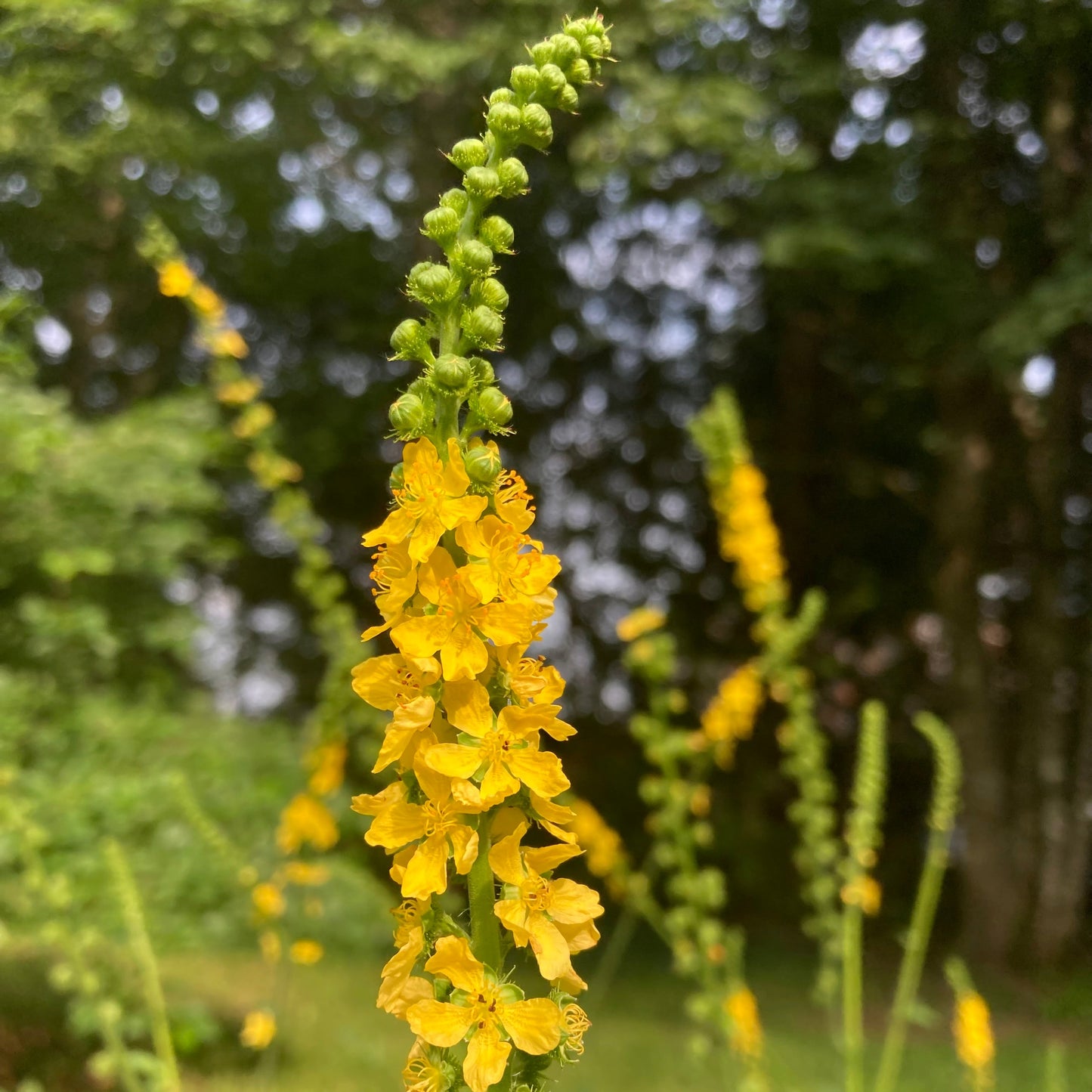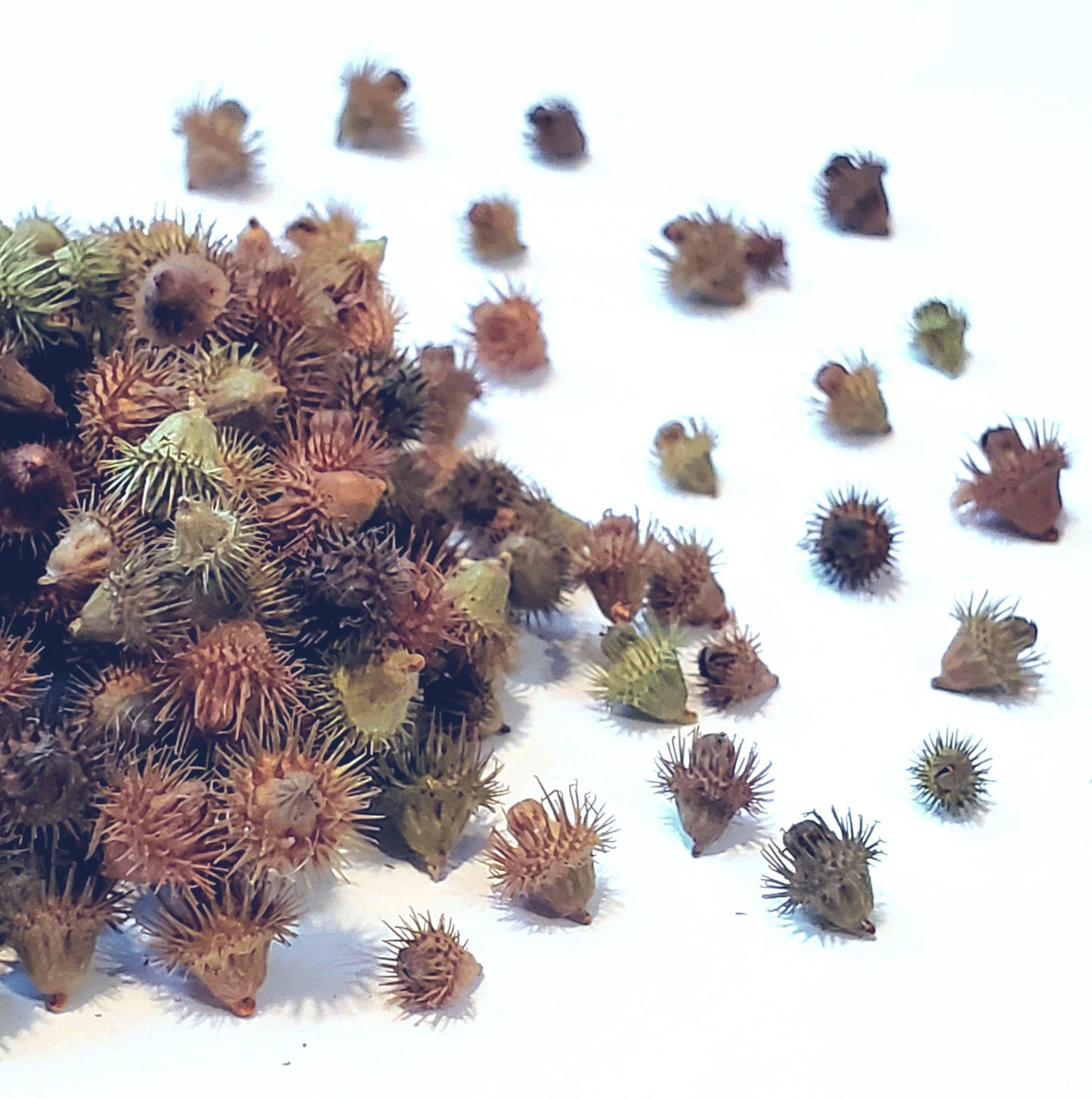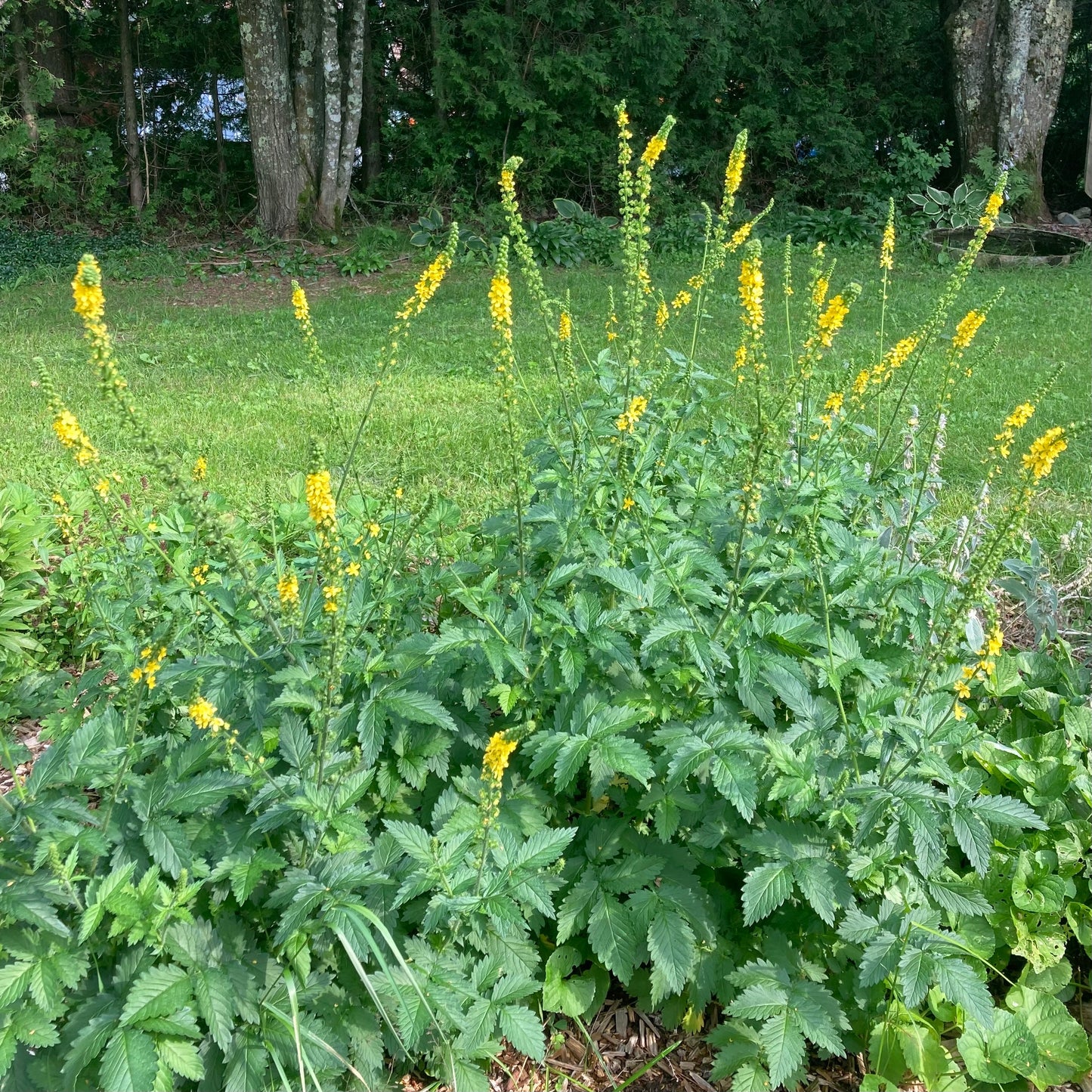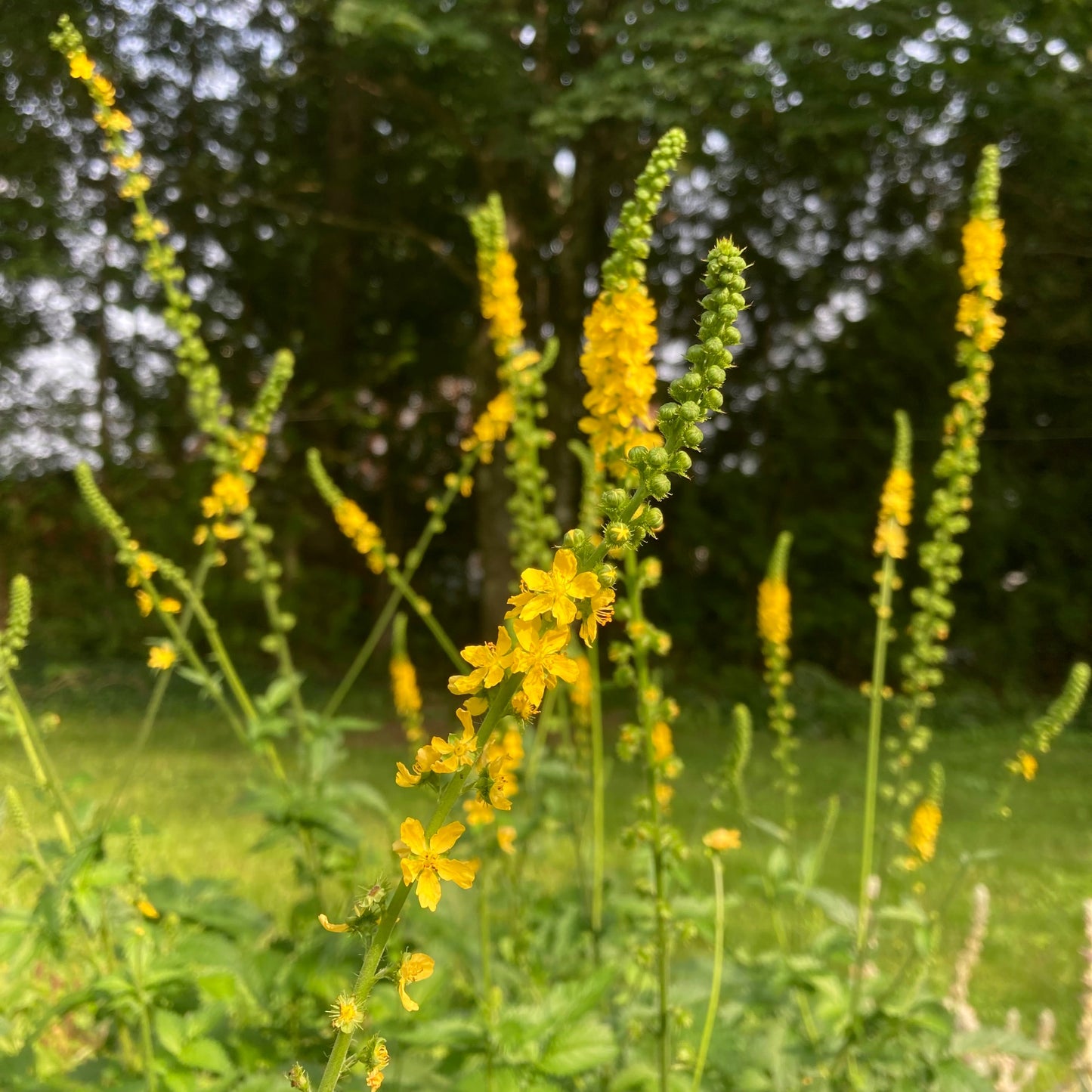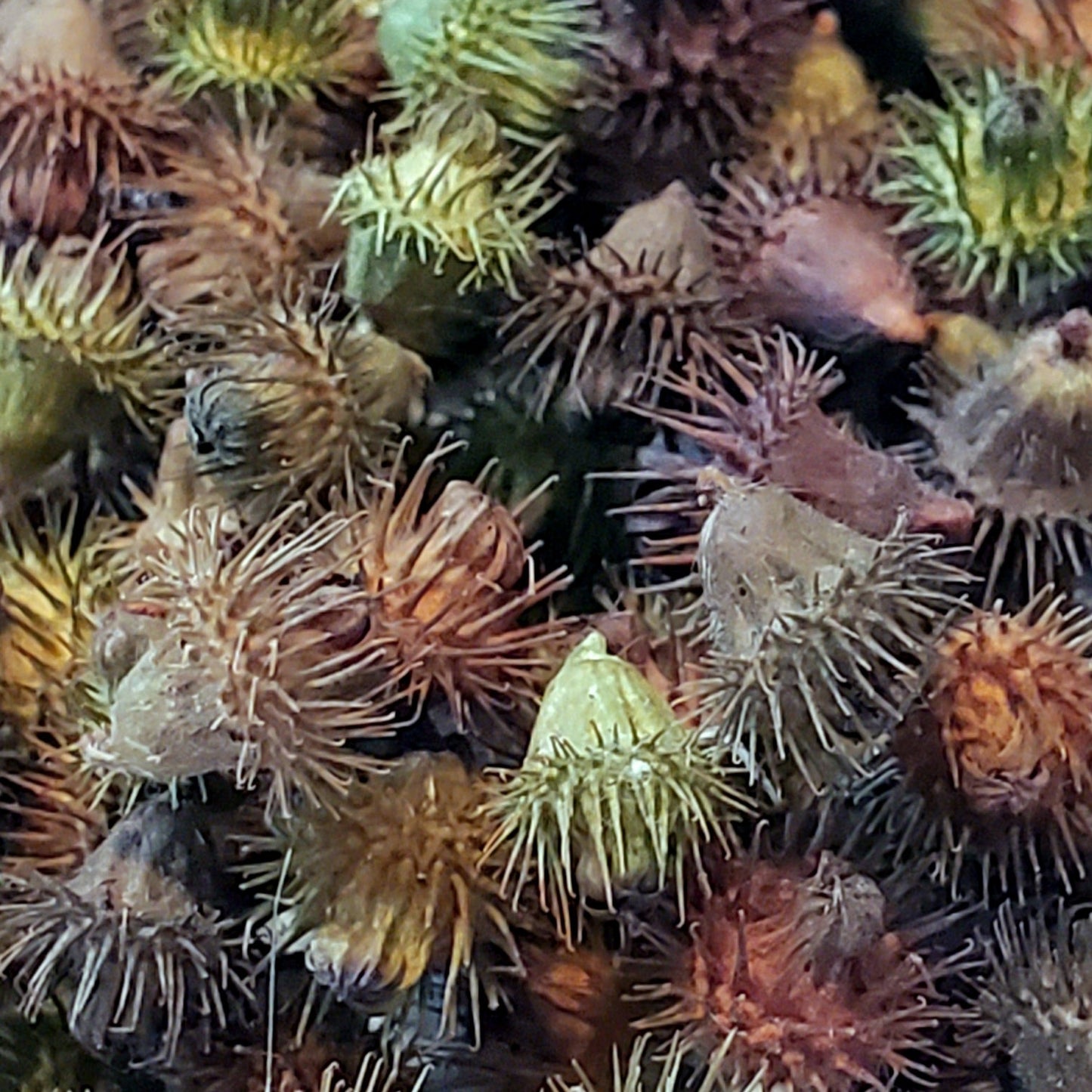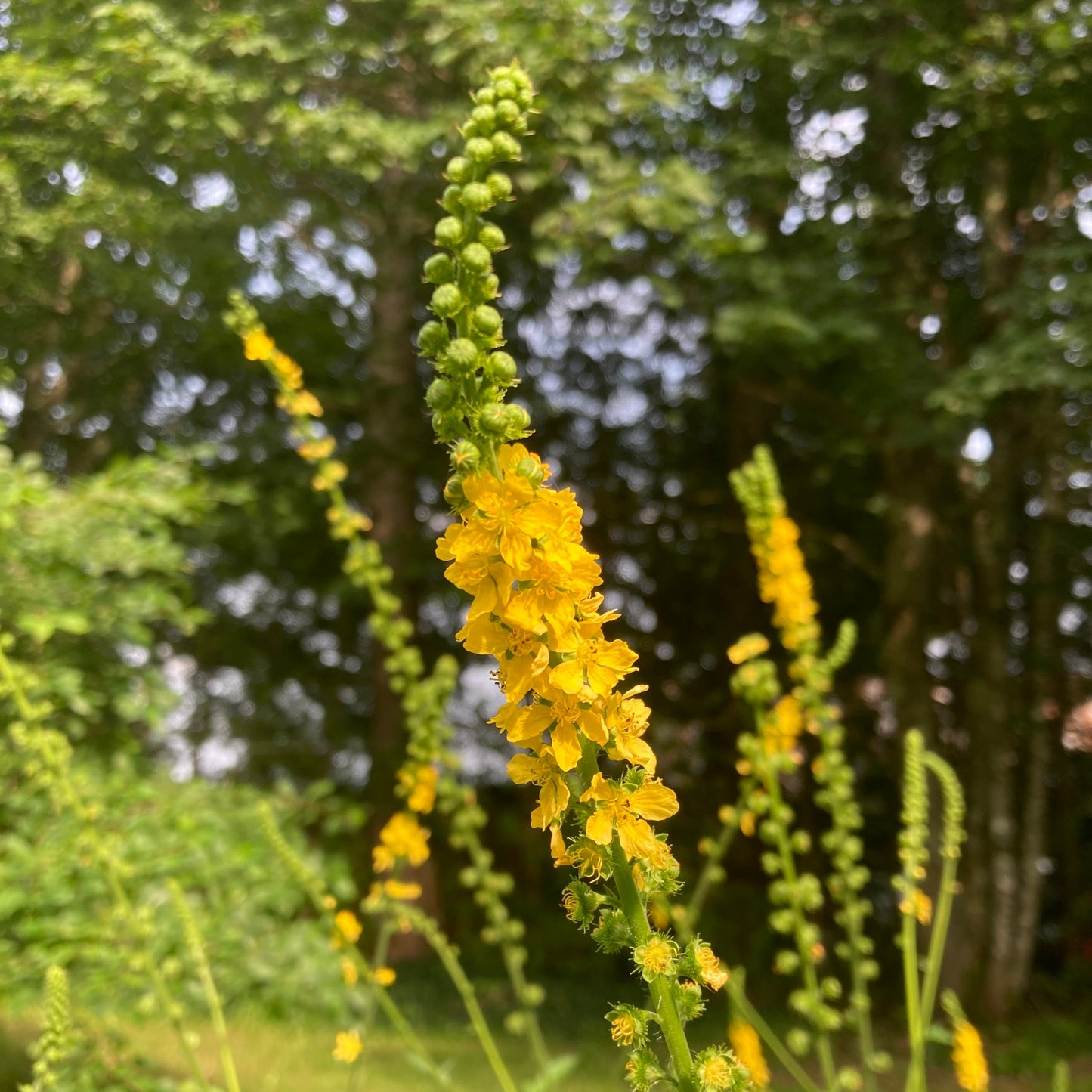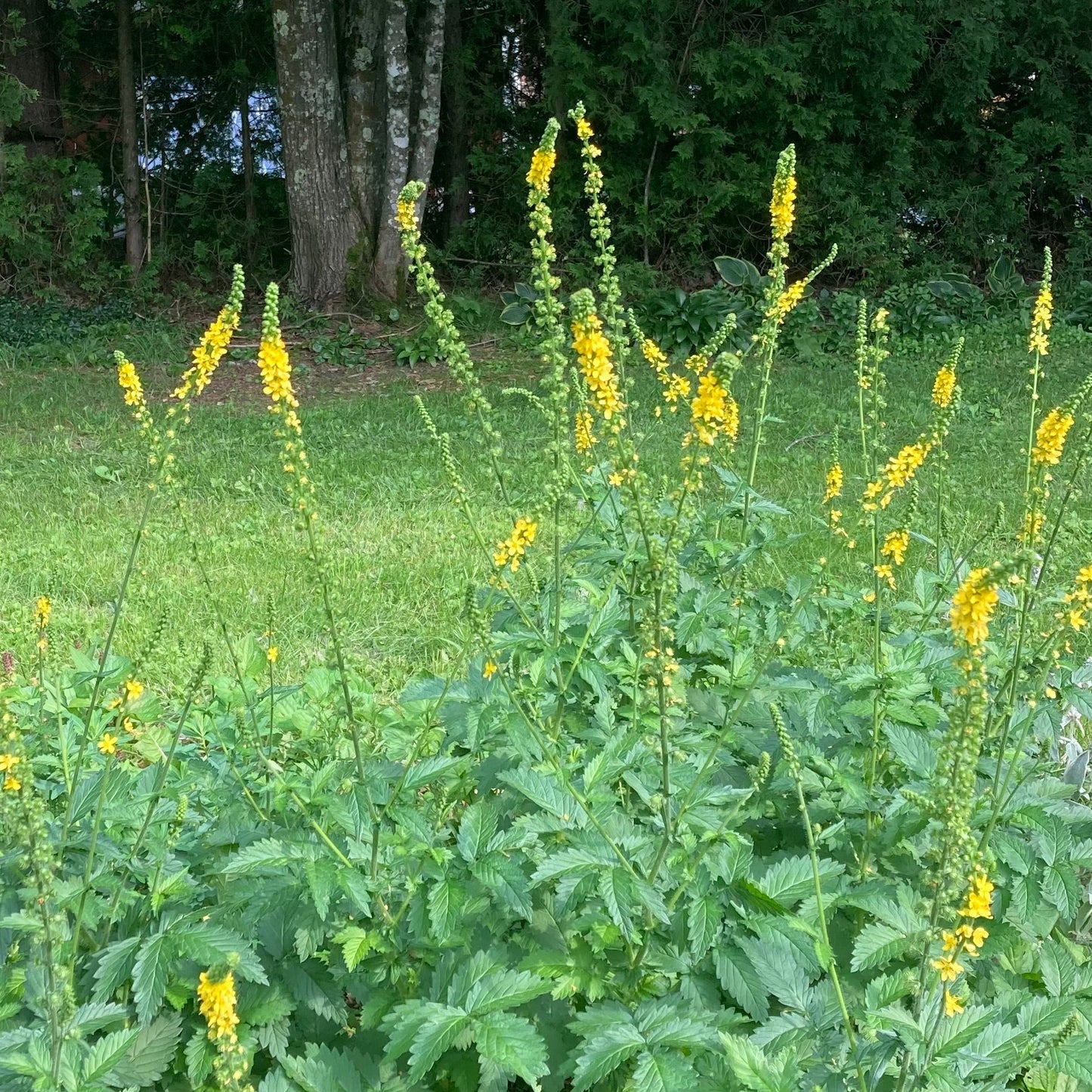Agrimony (Agrimonia eupatoria)
List Price:
Couldn't load pickup availability
Agrimony is a perennial plant native to Europe, Western Asia and Northern Africa which has naturalized in most of the US and Canada. It likes to grow in open fields, hedgerows and is often found on the edge of forests as if a protector of the land. Bright and beautiful yellow flower spikes appear on a downy stem about 20 inches or so tall.
When in nature, Agrimony is a welcome site along the trail and typically blooms from midsummer through September. The seeds that follow are contained within burr-like cases that stick to passers by. The leaves are downy and serrated and pinnately divided and have more fuzz on the bottom of the leaf giving the undersides a silvery appearance. The entire plant exudes a sweet citrusy scent.
The name Agrimony is derived from the word Argemone which was a word given by the Greeks to plants that were good for the eyes. The name Eupatoria refers to the Mithridates Eupator who was an Iranian king renowned for creating many herbal formulations. It is believed that Agrimony’s use as a plant ally dates back to ancient Egypt where it was considered to help with eye disorders, wounds and snakebites.
Today Agrimony is worked with as an astringent gastrointestinal tonic as well as a natural aid for coughs, bronchitis, asthma, skin eruptions and cystitis. Agrimony is also long known as a magical herb and was one of the said ingredients in the “witches ointments” of times past. It was said to be especially useful in magic to enhance the strength of spells. The flowers attract hoverflies, honey bees and are an important food source for butterflies.
